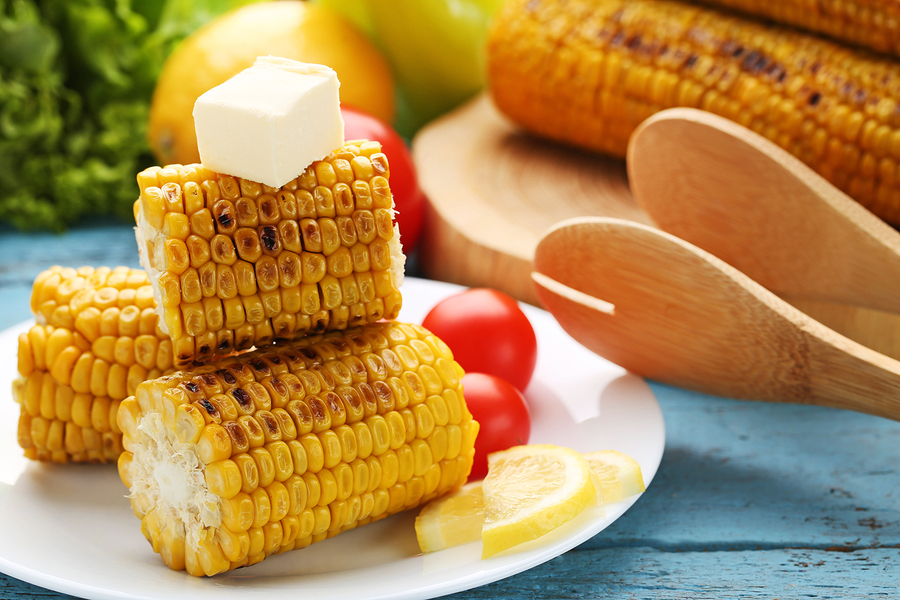- Make It Yourself Lavender Heart-Shaped Bath Bombs!
- 20 Things You Never Knew About “Down There”
- 12 Best Foods For Those Suffering From Arthritis Pain
- 12 Personal Hygiene Mistakes Almost Everyone Makes (Mom Never Told You About #4!)
- 15 Medicinal Plants And Herbs From The Cherokee People
- 12 Mind-Blowing Benefits Of Drinking Coconut Water During Pregnancy
- 12 Outstanding Winter Foods That Won’t Fatten You Up Like A Christmas Turkey
Why Is Butter Better?
For more than 50 years, butter has been recognized as the bad guy as far as foods are concerned. For most people, it is one of the first things eliminated when trying to lose weight and opting for the heart healthy route. They avoid it so that they won’t have to worry about their arteries getting clogged. But the scientific views have changed over the past half a century, and the news is that butter has gotten better for us.
Now, that being said, you shouldn’t slather the rich condiment all over everything you eat. However, it does mean that butter is much better for you than all the fake ingredients in butter substitutes and margarine. The changes are a result of the way cows are fed now. As farmers raise their animals on grass (as opposed to grains and corn), the animals are leaner and produce healthier byproducts.
1. It can protect you from cancer
Butter contains vitamins D and A. Besides increasing your immune system, the vitamins in butter help to eliminate the growth of cancer cells and help produce more red blood cells. These vitamins are both fat soluble, so just adding a tablespoon of butter to your toast in the morning gives you two percent of your daily values of both vitamins. Because of its fat content, butter is able to help your body absorb the nutrients better.
2. It is rich in vitamin A
Vitamin A is an important nutrient for our bodies. For example, the adrenal glands and thyroid need it to function properly. With this in place, butter ultimately helps the cardiovascular system.
3. Butter can prevent your teeth from decaying
Butter that comes from grass-fed cows consists of fat-soluble vitamins. These vitamins include D, A, and calcium. Because butter has such high levels of these vitamins, it surpasses the amount found in margarine or olive oil. The natural calcium in butter strengthens your teeth and reduces the risk of developing cavities.
Continue to Page 2
4. It cuts down on the symptoms of diabetes
The American Diabetes Association published the findings of a study showing that sodium butyrate, which is found in butter, is responsible for improving the response of insulin for those who have diabetes.
5. Strengthens your bones
Butter contains vitamin D, which helps strengthen your muscles and increase the density of your bones. Vitamin K is known as the vitamin that helps your blood clot when you are injured.
6. Butter is better for you than margarine
Besides tasting nicer than margarine, butter is better for you because of the high amounts of trans-fats found in the butter substitute. In addition, the vegetable fats that are in margarine are more responsible for the death of those with heart disease than the saturated fats found in butter.
7. Butter tastes better
Besides the flavor alone, butter tastes better and it is a natural food, whereas margarine is made from chemicals and isn’t even naturally yellow — it is grey. They merely add color to margarine to help it compete with butter.
Continue to Page 3
8. Helps keep your heart healthy
While you may not think “butter” and “healthy heart” in the same sentence, butter has antioxidants that help to keep your arteries from becoming weak. It also contains lecithin, which is important for maintaining the metabolism of your cholesterol levels.
9. Helps in the development of young children
Butter has cholesterol that helps a child’s brain develop and is important in the development of their nervous system.
10. Which kind of butter is the best?
While many people believe that organic, raw butter t is the best, it is not available because it is required to be pasteurized in order to be sold in the U.S. You can make your own butter just by whipping organic cream, or you can look for the butter from grass-fed cows. Many people have become aware of such butter because of the Paleo diet, which only allows products from grass-fed animals.
11. The latest findings regarding dementia
Even though many people have shied away from rich fats such as butter for a long time, the latest findings show that those who eat more fat have a “risk reduction” of getting dementia while those who eat more carbohydrates have a higher risk.
READ ALSO: A Variety of Surprising Chicory Health Benefits!
It is very easy to add butter to your daily routine. You can start off with butter on your toast in the morning, butter on your vegetables for lunch or dinner, and any number of sauces that you can drizzle over meat, chicken or fish entrees can contain melted butter. Starting at birth, children need fats such as from butter for the growth of their brain, for their heart, and for their immune system.
References:



































